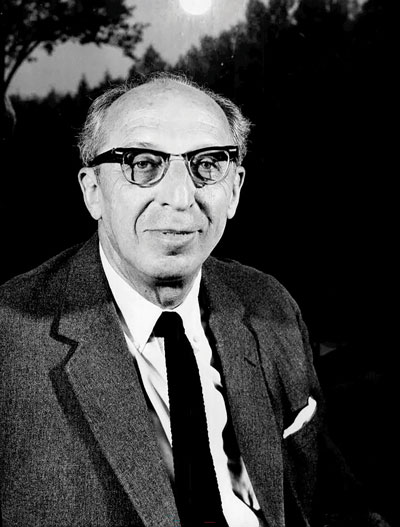Aaron Copland

- Born: November 14, 1900, Brooklyn, New York
- Died: December 2, 1990, Sleepy Hollow, New York
“The Promise of Living” from The Tender Land
- Composed: The opera was composed 1952–1954 (revised 1955); the arrangement of “The Promise of Living” was completed in 1954.
- Premiere: The premiere of the opera took place April 1, 1954, Thomas Schippers directing the New York City Opera at the City Center Theater. The final revision of the opera premiered May 20, 1955, Aaron Copland conducting the Oberlin College Opera Workshop.
- Instrumentation: SATB chorus, 2 flutes, oboe, English horn, 2 clarinets, 2 bassoons, 2 horns, 2 trumpets, 2 trombones, timpani, crash cymbals, glockenspiel, harp, celeste, piano, strings
- CSO notable performances: This is the first performance of this work at the May Festival. First Pops: September 2011, John Morris Russell conducting. Most Recent: July 2012 World Choir Games Opening Ceremony, John Morris Russell conducting.
- Duration: approx. 6 minutes
Aaron Copland completed the opera The Tender Land in 1952–54 with a libretto by Horace Everett (pseudonym of Erik Johns), adapted from James Agee’s 1941 documentary account of Depression-era tenant farmers, Let Us Now Praise Famous Men. Richard Rogers and Oscar Hammerstein II commissioned the piece for the 30th anniversary of the League of Composers. The nature of the commission kept Copland’s ambitions for the work humble, with intention for television broadcast at a scale also accessible to university repertory theaters. It premiered at the New York City Opera on April 1, 1954 under the direction of Jerome Robbins.
The opera revolves around the provincial Moss family and the arrival of two itinerant workers, Martin and Top, falsely rumored around town to be deviants. The plot’s action derives from the coming of age of the Moss’s daughter, Laurie. On the eve of her high school graduation, Laurie falls in love with Martin, whom she sees as her way into the wider world. The two decide to elope, but, fearing danger, Martin abandons Laurie. Heartbroken, she determines to leave home on her own.
Copland later arranged select numbers as standalone pieces, including “The Promise of Living,” a clarion anthem of thanksgiving. The number comes at the end of the opera’s first act, once Grandpa Moss has hired Martin and Top to help with the coming harvest. The chorus extolls the joy and invigoration of communal labor, the lifeblood of the rural way of life portrayed in The Tender Land.
—Dr. Jacques Dupuis